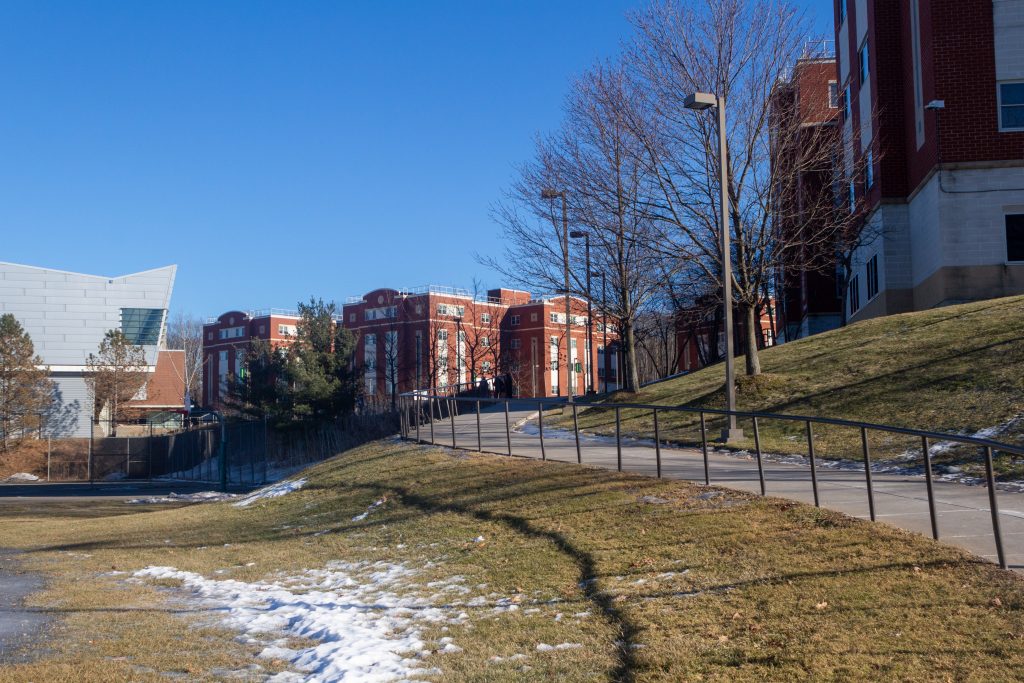Over winter break, Binghamton University expanded its isolation and quarantine housing in response to rising COVID-19 cases.
The University now has 320 beds available to students who would like to remain on campus during their quarantine or isolation period, a 150-bed increase from the year prior. The quarantine duration has also changed, now shortened from 10 days to five, in accordance with United States Centers for Disease Control and Prevention (CDC) guidance.
David Hubeny, executive director of emergency management, said the University expanded quarantine housing in response to the increase in COVID-19 cases associated with the Omicron variant.
“The University has reserved multiple on-campus and off-campus buildings for [quarantine and isolation] housing but the need to occupy these spaces has remained low,” Hubeny wrote in an email.
Caroline Sandleitner, BU Council student representative and first-year graduate student studying public administration, said the University has also added additional staff to its isolation and quarantine team, though COVID-19 case rates have remained relatively low.
“It is my understanding that the University strengthened their [COVID-19] response following the recent winter break, which is why the semester was pushed out by one week,” Sandleitner wrote in an email. “During this time, they increased isolation housing and prepared to have students move onto campus. In the past few weeks, especially with mandated surveillance testing, the number of students in isolation housing has decreased compared to previous semesters.”
According to both Hubeny and Sandleitner, the College-in-the-Woods Dining Center was able to reopen because of the low demand for quarantine and isolation housing. BU currently has 253 estimated positive cases over a 14-day period as of Feb. 20, according to the SUNY COVID-19 Case Tracker. Although COVID-19 cases remain low, students are still expected to schedule an appointment and report to mandatory surveillance testing during their designated weeks.
Besides an increase in the staff and beds and the shortening the quarantine period from 10 to five days, Hubeny said student accommodations will remain consistent with previous semesters.
“The health and safety of our students continues to be our priority, and students in [quarantine and isolation] housing continue to receive the same level of service and quality of care as they have previously received,” Hubeny wrote.
Julyna Ho, a sophomore majoring in psychology, had isolated on campus last year and said the University’s new, lower isolation period would have improved her experience as she dealt with the effects of isolation.
“It was nice having visitors,” Ho said. “Friends are able to bring you anything you need, like food if you don’t like the dining hall food. Snacks are one of the things I forgot to bring. Besides that, it was really hard to get my work done, especially with how sudden the move was. It was more dreadful during the 10–day quarantine policy because we wouldn’t have any social interaction during that time, so it was hard to get work done.”
If a student tests positive off campus, they must email Safe Housing at safehousing@binghamton.edu, according to the Decker Student Health Services. The email should include their B-Number, cell phone number and the date of their positive test. The COVID-19 Response Team will contact the student via cell phone to discuss their isolation options, during which students should wear masks, stay in their room and monitor their phone.



